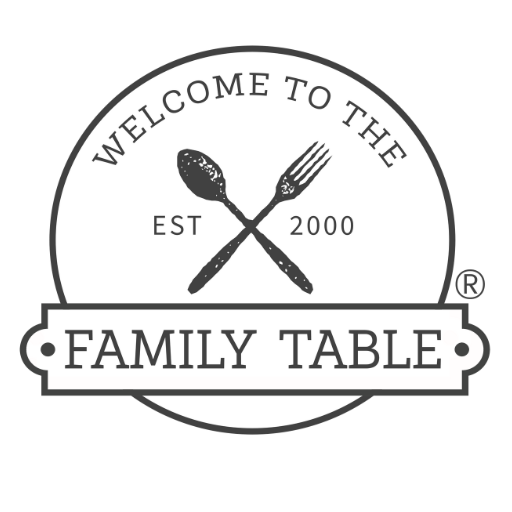Seeking Help in Marriage
Seeking help in marriage when you feel a strain in your marriage is one of the wisest things you can do. A healthy marriage requires having outside accountability to be sure that both parties are doing their part. This guest post from Sharla, shares her and her husband’s experience of seeking help and how it turned everything around.
Seeking Help in Marriage
2012 . . . we were battered and bruised, exhausted, every bit the picture of the walking wounded. Financial strain, the depletion of ourselves that came with parenting so many special-needs children, surviving crisis after crisis, always emerging a little more beaten down each time — it had taken a toll on our marriage. We were both hurting.
Around us, one marriage, then another, then another, and another and another began to fall like dominoes, including family and close friends. We heard from some that life was easier now that they were separated, and there were days when giving up looked almost tempting. Staying together felt like it would be an uphill climb, and we were both so tired that it was daunting.

We made the choice to fight for our marriage but we didn’t have the skills to do it alone. We sought out a Christian marriage counselor and started attending weekly sessions. You may want to hear that it was instantly wonderful, but things actually got worse before they got better. In some of the sessions, we worked on uncovering old hurts or misunderstandings, and unearthing them was painful.
We also had to change patterns in our marriage that had been long established, and change is hard. I would often leave the sessions feeling emotionally drained and discouraged, but I sensed that shifts were beginning to happen for both of us.
When we went into counseling, I thought that most of the changes needed would need to be from my husband; I was humbled to learn that much of the fault in our relationship was mine and that I would need to make changes as well.
One of the hardest things for me was to become more vulnerable, to react with honesty about my underlying feelings instead of lashing out in anger. Often, feelings like rejection or hurt were being covered up with that anger and it felt more comfortable to express that than it did to be real.
I am so thankful that I have a husband who was willing to make changes. He was also willing to invest time into growing our relationship. For a while, he put his work on the back burner as we worked intensively on getting to know each other again. I know that not all men would be willing to do that, and I am grateful for the time and the effort he put in then and continues to put in now.
We went on dates at least weekly, and often they lasted all day.
At one point, I made a list of date ideas that would be more interactive than just dinner and a movie so that we could start having fun again. We had had several years of stress with a child with a severe health condition, two more children being added to our family through adoption, my parents divorcing, his dad getting diagnosed with cancer, and the special needs of our kids. We needed to infuse some laughter back into our lives.
I had also spent so many years putting the kids first that our marriage had fallen to the back burner. We needed time together and those dates, usually on the days that we had marriage counseling, became a critical part of our rebuilding.
We no longer go weekly for counseling.
We were able to stretch it out to every second week at one point, and now we are going about every third week and it serves almost as maintenance. I think even healthy marriages can benefit from having a qualified third party help them to improve their relationship.
Marriage counseling may be able to help:
- improve your communication skills and give you the tools to be able to handle disagreements respectfully.
- recognize unhealthy patterns you may have developed and help you break those patterns and replace them with healthier ones.
- help you determine what is and isn’t healthy if you didn’t see a healthy marriage modeled in the home when you were growing up.
- get rid of built-up resentments.
- help each partner express themselves more clearly.
- address specific issues or concerns.
- help in an acute time of crisis.
For us, marriage counseling helped us to grow together instead of apart and brought our relationship to a much deeper level. It strengthened my commitment and gave us skills that we can draw from in hard times.
It is important to find the right counselor. It needs to be someone that you both feel comfortable with. You may need to try several professionals before you find the right fit. We went to a different counselor for one session years ago and it was a terrible experience.
Ask friends, family, or your church for recommendations. That is how we were able to find our current counselor. I also recommend that you use a Christian counselor so that you can add prayer into your sessions and have Biblical wisdom poured into your marriage.
As a final note, if your partner is not willing to go for counseling, I recommend that you go on your own and continue to pray for a change in heart for him or her. You will be able to work on making the changes that you can make, improve your communication skills, and possibly even gain insight into your spouse. Allow God to do the rest.
GUEST AUTHOR: Sharla Kostelyk is the mother of seven, two through the miracle of birth and five through the miracle of adoption. She shares about finding joy amidst the chaos of everyday life at The Chaos and The Clutter, where she writes about sensory play, homeschooling, kids’ activities, recipes, and special needs parenting.You can also find her on Facebook Pinterest Twitter Google+


